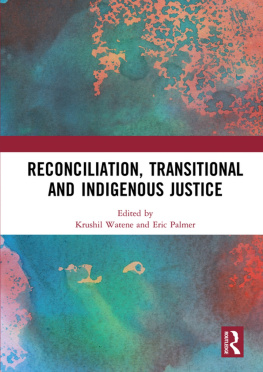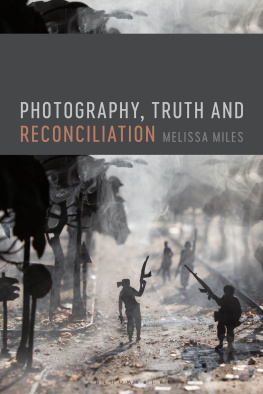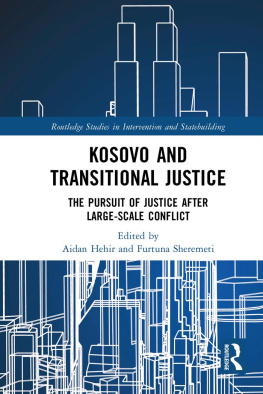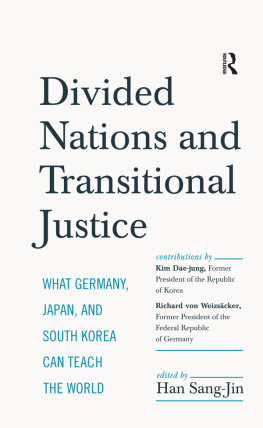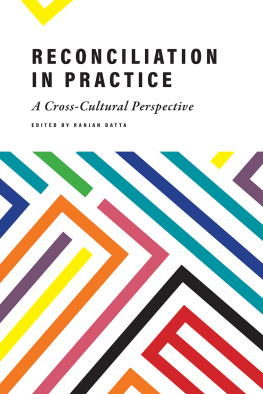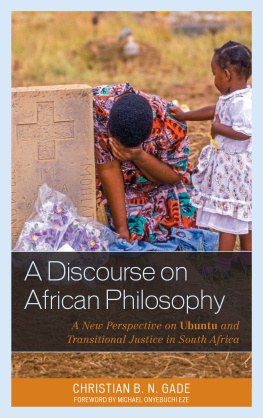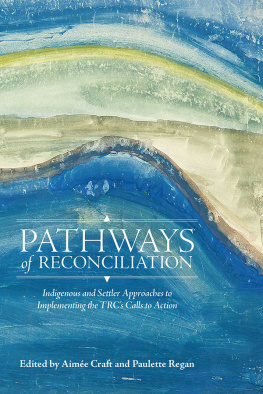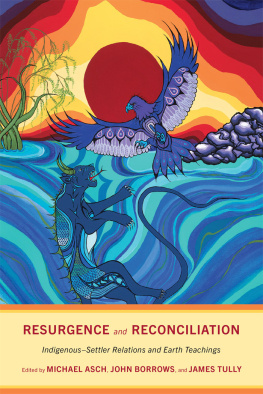Reconciliation, Transitional and Indigenous Justice
Reconciliation, Transitional and Indigenous Justice presents fifteen reflections upon justice twenty years after the Truth and Reconciliation Commission of South Africa introduced a new paradigm for political reconciliation in settler and post-colonial societies.
The volume considers processes of political reconciliation, appraising the results of South Africas Commission, of the recently concluded Truth and Reconciliation Commission of Canada and of the on-going process of the Waitangi Tribunal of Aotearoa New Zealand. Contributors discuss the separate politics of Indigenous resurgence, linguistic justice, environmental justice and law. Further contributors present a theoretical symposium focused on The Conceptual Foundations of Transitional Justice, authored by Colleen Murphy, who provides a response to their comments. Indigenous and non-Indigenous voices from four regions of the world are represented in this critical assessment of the prospects for political reconciliation, for transitional justice and for alternative, nascent conceptions of just politics.
Radically challenging assumptions concerning sovereignty and just process in the current context of settler-colonial states, Reconciliation, Transitional and Indigenous Justice will be of great interest to scholars of Ethics, Indigenous Studies, Transitional Justice and International Relations more broadly. With the addition of one chapter from The Round Table, the chapters in this book were originally published as a special issue in the Journal of Global Ethics.
Krushil Watene is Rutherford Discovery Fellow of the Royal Society of New Zealand and Associate Professor in Philosophy at Massey University, New Zealand.
Eric Palmer is co-editor of the Journal of Global Ethics, President of the International Development Ethics Association and Professor of Philosophy at Allegheny College, USA.
First published 2020
by Routledge
2 Park Square, Milton Park, Abingdon, Oxon, OX14 4RN
and by Routledge
52 Vanderbilt Avenue, New York, NY 10017
Routledge is an imprint of the Taylor & Francis Group, an informa business
2020 Taylor & Francis
All rights reserved. No part of this book may be reprinted or reproduced or utilised in any form or by any electronic, mechanical, or other means, now known or hereafter invented, including photocopying and recording, or in any information storage or retrieval system, without permission in writing from the publishers.
Trademark notice: Product or corporate names may be trademarks or registered trademarks, and are used only for identification and explanation without intent to infringe.
British Library Cataloguing in Publication Data
A catalogue record for this book is available from the British Library
Typeset in Myriad Pro
by Newgen Publishing UK
Publishers Note
The publisher accepts responsibility for any inconsistencies that may have arisen during the conversion of this book from journal articles to book chapters, namely the inclusion of journal terminology.
Disclaimer
Every effort has been made to contact copyright holders for their permission to reprint material in this book. The publishers would be grateful to hear from any copyright holder who is not here acknowledged and will undertake to rectify any errors or omissions in future editions of this book.
The chapters in this book, except Chapter 8, were originally published in the Journal of Global Ethics, volume 14, issue 2 (August 2018). Chapter 8 was originally published in The Round Table, volume 107, issue 4 (2018). When citing this material, please use the original page numbering for each article, as follows:
Chapter 1
Introduction: new paths in reconciliation, transitional and Indigenous justice
Eric Palmer and Krushil Watene
Journal of Global Ethics, volume 14, issue 2 (August 2018), pp. 133136
Chapter 2
Capturing transitional justice: exploring Colleen Murphys The Conceptual Foundations of Transitional Justice
Margaret Urban Walker
Journal of Global Ethics, volume 14, issue 2 (August 2018), pp. 137146
Chapter 3
Justice in circumstances of transition: comments on Colleen Murphys theory of transitional justice as justice of a special type
George Hull
Journal of Global Ethics, volume 14, issue 2 (August 2018), pp. 147158
Chapter 4
Ends and means of transitional justice
Thaddeus Metz
Journal of Global Ethics, volume 14, issue 2 (August 2018), pp. 159168
Chapter 5
Transitional justice as a philosophical and practical challenge: critical notes on Colleen Murphys new theory of the conceptual foundations of transitional justice
Sirkku K. Hellsten
Journal of Global Ethics, volume 14, issue 2 (August 2018), pp. 169180
Chapter 6
On theorizing transitional justice: responses to Walker, Hull, Metz and Hellsten
Colleen Murphy
Journal of Global Ethics, volume 14, issue 2 (August 2018), pp. 181193
Chapter 7
The truth and reconciliation commission in South Africa: perspectives and prospects
N. Barney Pityana
Journal of Global Ethics, volume 14, issue 2 (August 2018), pp. 194207
Chapter 8
The Unsettledness of Treaty Claim Settlements
Margaret Kawharu
The Round Table, volume 107, issue 4 (2018), pp. 483492
Chapter 9
Behind the smoke and mirrors of the Treaty of Waitangi claims settlement process in New Zealand: no prospect for justice and reconciliation for Mori without constitutional transformation
Margaret Mutu
Journal of Global Ethics, volume 14, issue 2 (August 2018), pp. 208221
Chapter 10
Reconciliation and environmental justice
Deborah McGregor
Journal of Global Ethics, volume 14, issue 2 (August 2018), pp. 222231
Chapter 11
Storied with land: transitional justice on Indigenous lands
Esme G. Murdock
Journal of Global Ethics, volume 14, issue 2 (August 2018), pp. 232239
Chapter 12
Epistemic injustice in a settler nation: Canadas history of erasing, silencing, marginalizing
Christine M. Koggel
Journal of Global Ethics, volume 14, issue 2 (August 2018), pp. 240251
Chapter 13
Reconciliation: six reasons to worry
Courtney Jung
Journal of Global Ethics, volume 14, issue 2 (August 2018), pp. 252265
Chapter 14
The moral fabric of linguicide: un-weaving trauma narratives and dependency relationships in Indigenous language reclamation
Shelbi Nahwilet Meissner
Journal of Global Ethics, volume 14, issue 2 (August 2018), pp. 266276
Chapter 15
On resilient parasitisms, or why Im skeptical of Indigenous/settler reconciliation
Kyle Powys Whyte

